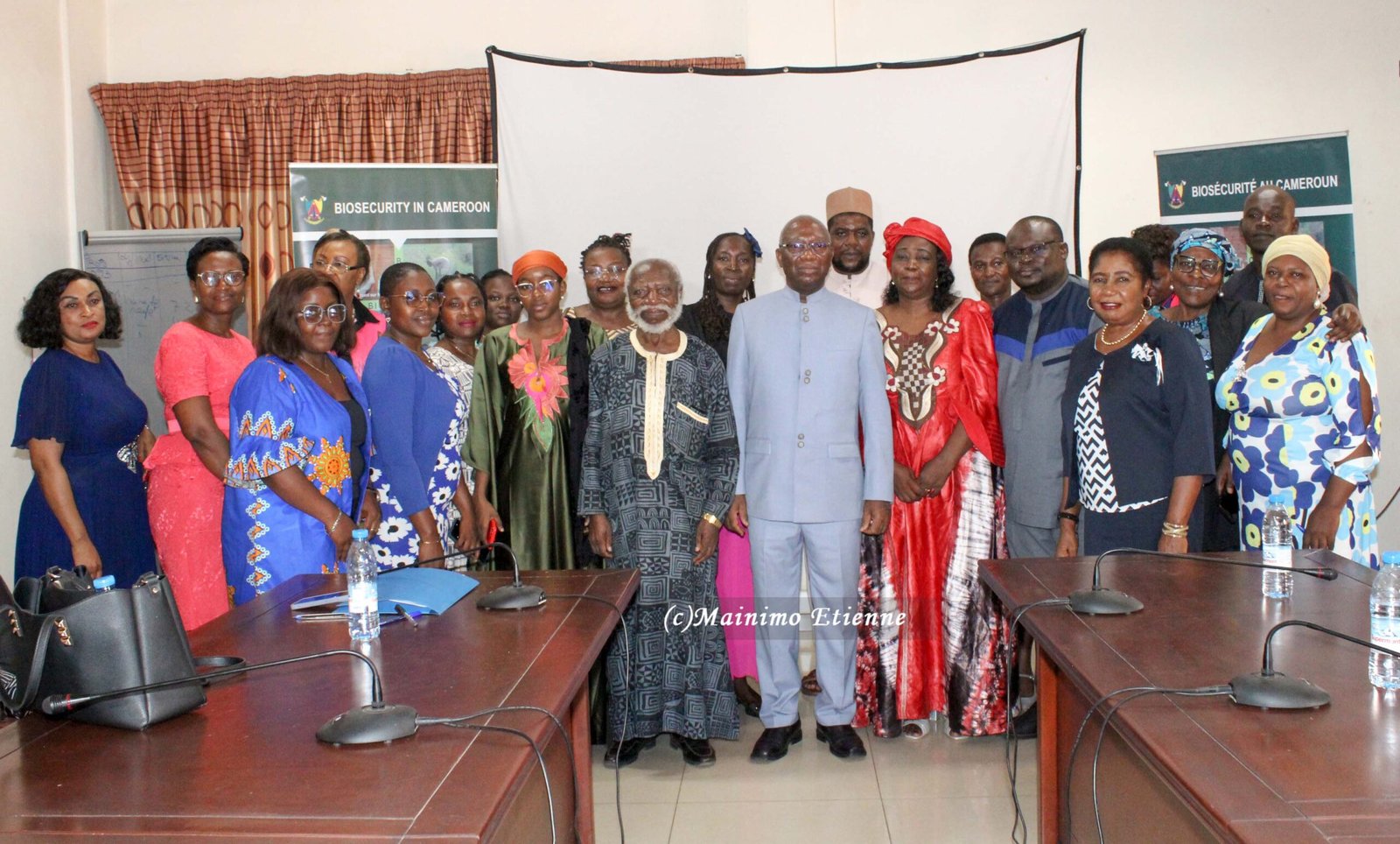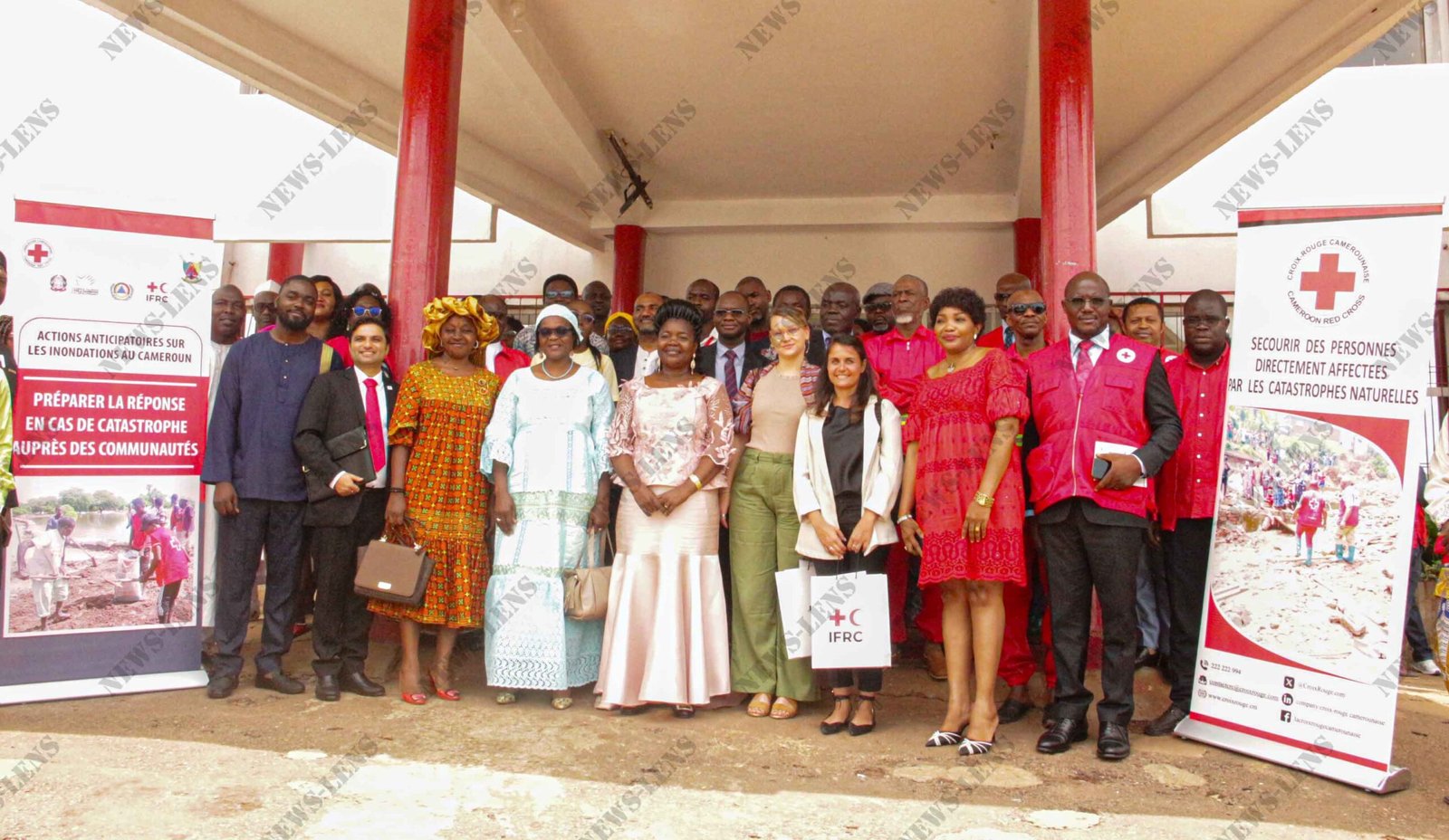By Etienne Mainimo Mengnjo
Women in Cameroon have been called upon to take the lead in promoting biosecurity awareness, a crucial challenge given their central role in the agricultural sector.
This call to action was the outcome of a significant exchange held in Yaoundé on March 10, involving officials from the Cameroon Biosecurity Project and members of the press. The gathering served as a continuation of the celebrations marking the 2025 International Women’s Day.

During the meeting, Dr. Rigobert Ntep, Project Coordinator, emphasized the vital role women play in ensuring food safety, environmental protection and the health of their families.
“Women are at the forefront of activities in every aspect especially in agriculture,” he said. Dr. Ntep stressed the importance of ensuring that both the food items produced are safe for consumption and the surrounding environment protected as well.
As the biosecurity project enters its second phase, Dr. Ntep shared outstanding accomplishments realized so far. He highlighted the development of various tools aimed at implementing effective biosecurity measures.
“We have produced several documents, trained personnel, and equipped laboratories, including the Biosecurity Lab at the University of Buea and Yaoundé I,” he explained. He also mentioned that a draft law, which aims at enhancing the country’s biosecurity framework through the creation of a Biosecurity Agency would soon be tabled in the upcoming legislative session.

Dr. David Mbah, a prominent researcher and member of the Cameroon Academy of Sciences on his part elaborated on the measures being put in place at the administrative, judicial, and technical levels to ensure national safety with regards to biosecurity. He emphasized on the need for a comprehensive awareness raising among the population concerning the importance of biosecurity in safeguarding food systems and public health.
Dr. David Mbah alongside DILI Albertine, the Gender Focal Point at the Ministry of Environment, and Johnbang Mirabel Lanyuy, an Agricultural Engineer, urged women in the media to actively participate in raising public awareness on biosecurity issues. These experts all emphasized that informed communities are essential for the success of biosecurity initiatives.
Mirabel Lanyuy clarified the project’s approach, saying, “The biosecurity project is not about introducing new technologies or reinventing the wheel. It collaborates with various stakeholders and government Ministries already active in their respective sectors.”
“The biosecurity initiative will build upon existing policies rather than create new ones,” Lanyuy stated. “Community seed systems have been established to promote sustainability and resource management for farmers. The essence of these systems is to empower farmers to manage their seeds effectively, and ensuring long-term sustainability.”

The meeting also underscored the importance of collaboration among stakeholders in addressing biosecurity challenges. By leveraging existing resources and expertise, the project aims to create a robust framework that not only enhances safety but also protects public health.
As the conversation around biosecurity continues to grow, the role of women in championing these initiatives becomes increasingly crucial. Their active participation can lead to more effective implementation of biosecurity measures, ultimately contributing to a safer and more sustainable agricultural environment in Cameroon.
By fostering awareness and collaboration, women especially those in rural communities can play an instrumental role in shaping a future where food safety and public health are prioritized. The ongoing efforts by the biosecurity project, coupled with the commitment of women across the nation, raise hopes that a lasting impact on Cameroon’s agricultural landscape will soon be created.







